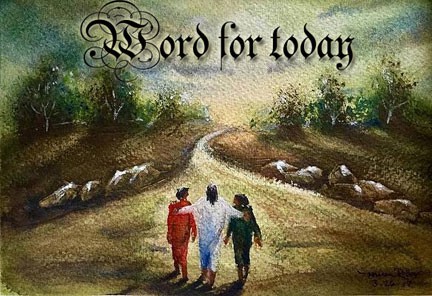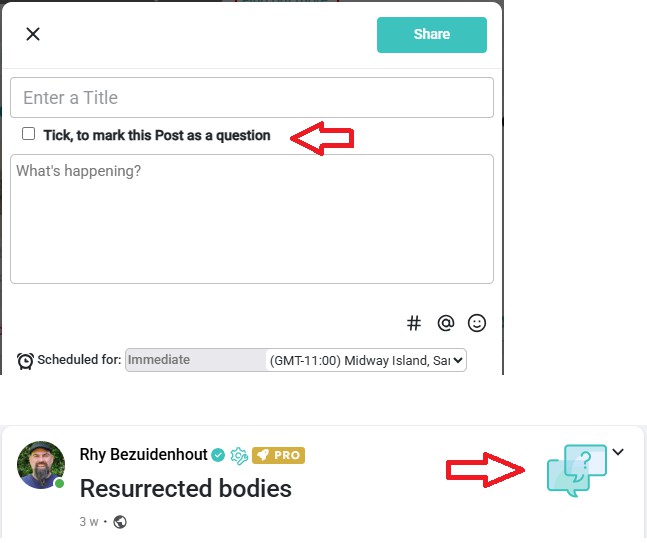Watch
Events
Articles
Market
More
072425 / 28th day of the 4th month 5786
WORD FOR TODAY “all secrets good or bad will be uncovered”: Mat 10:26 So do not fear them; for there is nothing covered that will not be uncovered, or hidden that will not be known.
WISDOM FOR TODAY: Pro 27:1 Do not boast about tomorrow, For you do not know what a day may bring forth.
www.BGMCTV.org




Faith is more than simply believing, faith needs to become action. One can believe a chair will not break if one sits on it, but the action of sitting on that chair displays faith. Jude 1:3 mentions “the” faith entrusted once for all the saints. Exodus chapters 20 — 23 reveal how we display our faith and put that faith into action.



Big news: You can now flag your posts as questions with one click!
🔹 How it works:
Tick the "This Post is a question" box when creating/editing a Post.
A ? icon will appear next to the dropdown menu icon on the Post (see attached image).
🔹 Why it matters:
✅ More visibility for posts where you genuinely need help.
✅ Faster responses—as you know, our community loves sharing knowledge.
✅ Easier to browse for members who enjoy answering questions.
Over the years, I’ve noticed question posts spark the best discussions and now, they’ll stand out even more!
Try it out and let me know what you think below.




Thought for Today: Thursday July 24
If I must compare, I would say that the people of this world today, has become like the people in Jeremiah’s day. Jeremiah 8:12: “they have no shame at all, they do not even know how to blush!” If people, and some believers, wants to be pure and holy, they must commit themselves --- mind, body and spirit --- completely to the Moshiach. You cannot hold back any area of your life from Him. Secondly, you have to avoid situations that may encourage impure thoughts or actions. And lastly, you must fill your heart and mind with the Moshiach by feeding your soul on a daily diet of prayer and YHVH’s Word. Faith in YHVH, and to follow the Moshiach is free.



What does it mean to produce fruits worthy of repentance? What happens if we don't produce fruit like that? Do we stay on God's angry list until we do? These are questions David Jones and Barry Phillips investigate in this conversation.
https://www.buzzsprout.com/229....2194/episodes/173666



What does it mean to produce fruits worthy of repentance? What happens if we don't produce fruit like that? Do we stay on God's angry list until we do? These are questions David Jones and Barry Phillips investigate in this conversation.
https://www.buzzsprout.com/229....2194/episodes/173666



And they said, “If we have found favor in your sight, let this land be given to your servants for a possession. Do not take us across the Jordan.”
Numbers 32:5
Reuben and Gad said that they wanted land east of the Jordan for purely economic reasons, but that's rarely a good reason to separate from the rest of God's people. The Jordan between them and the rest of the Kingdom is much like the barriers we inadvertently erect between us and God by an inappropriate focus on temporary gain.
What barriers do you tend to put up between yourself and the rest of the Kingdom? Between yourself and God?


